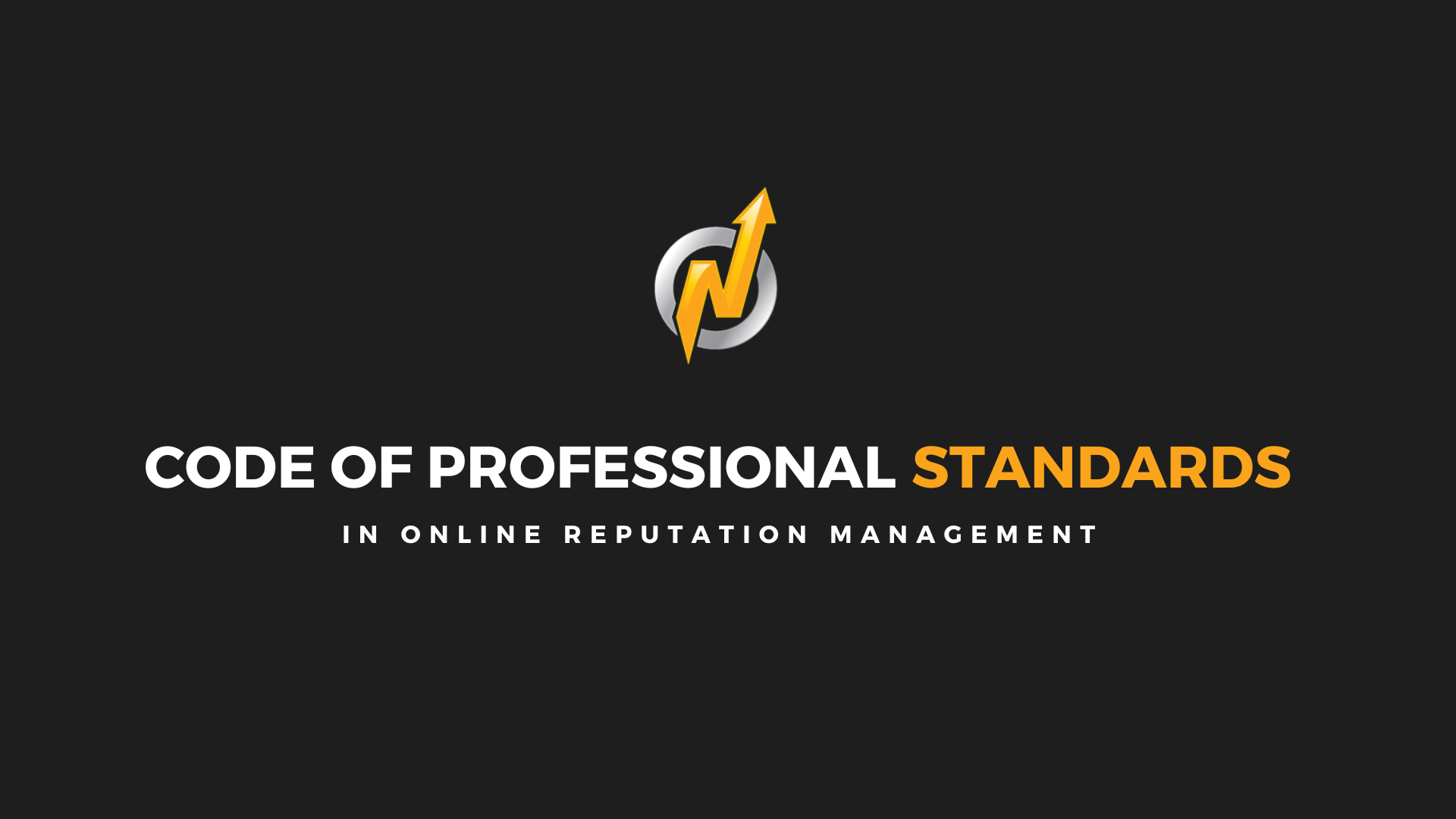2024 Online Reputation Management Statistics
Only 5% of internet users look past the first page of search results. This is where businesses fight for their online image1. With 90% of customers reading reviews before visiting a business, it shows how crucial online reputation is1. Even one bad article on the first page can lead to a 22% loss of customers. This makes an online reputation management (ORM) strategy essential1. The stats of 2024 highlight how consumer actions impact a business’s online success.

Key Takeaways
- Digital reputation shapes consumer decisions, with vast majorities consulting reviews pre-purchase1.
- The omnipresence of reviews influences 67.7% of purchasing decisions, highlighting the need for a proactive ORM strategy1.
- Negative content significantly risks customer acquisition, with the first page of search results carrying disproportionate influence1.
- Trust in online reviews equals that of personal recommendations for 84% of people, stressing the importance of managing digital footprints1.
- Yelp’s role in consumer intent is substantive, as 82% of its users are primed to procure products or services1.
- The imperative to safeguard reputation is compounded by 91% of adults using search engines to gather web information, making visibility key to survival1.
- Social media’s influence is accentuated by 70% of employers screening candidates via these channels, indicating the broad impact of online status1.
The Vital Role of Online Reviews in Consumer Trust
Online reviews are key in building a business’s reputation and consumer trust. A massive 91% of people believe local business reviews shape their views on brands2. Also, businesses that talk to their reviewers are more likely to succeed. About 88% of consumers prefer businesses that respond to their reviews2.
Ignoring online feedback can hurt companies. With 75% of people reading reviews to check out businesses2, not replying could mean missed chances. Businesses need to handle their reviews well across different sites. Google leads as the main place for reviews, used by 81% of consumers for checking businesses2. Instagram and TikTok are also becoming popular places to find reviews, with 34% and 23% of consumers using them2.
The Weight of Positive Reviews on Consumer Perception
Positive reviews mean a lot. They build trust and show credibility. An impressive 94% of consumers are likely to try a business with at least a four-star rating3. Also, companies that answer all their reviews can attract 88% of consumers. That’s way better than the 47% who would consider a business that ignores its reviews2. This shows how vital it is to keep a good relationship with consumers online.
The Detrimental Impact of Negative Reviews
Negative reviews leave a long-lasting bad impression. Seeing just one bad review means businesses could lose 22% of potential customers3. This fact makes managing online opinions super important.
The Influence of Star Ratings on Business Outcomes
Star ratings really matter for a business’s image. They’re one of the first things customers look at. A notable 40% of consumers focus on recent reviews, within the last two weeks3. Knowing that almost half expect a four-star rating shows how these ratings affect businesses financially3.

| Review Platform | Usage Among Consumers in 2024 | Change Since 2022 |
|---|---|---|
| 81% | N/A | |
| Apple Maps | 16% | +3% |
| Trustpilot | 10% | +3% |
| Local News | Variable | +8% |
| 34% | +2% | |
| TikTok | 23% | +3% |
| ChatGPT/Generative AI | 10% | Newly Measured |
In today’s fast-changing digital world, it’s crucial for businesses to get how online reviews and consumer trust work together. The data shows that taking care of your online image through smart review management builds consumer confidence and leads to business success.
Consumer Behavior and Online Review Platforms
Exploring how consumer habits and review sites interact gives valuable insights into market trends. While word-of-mouth still matters, online reviews now play a big role in consumer trust. This shift highlights how important digital feedback has become in shaping buying decisions.
Employer Reviews Affecting Perception of Businesses
Yelp and Revenue: A Statistical Connection
Research shows about 60% of shoppers check online reviews weekly before buying4. This habit directly affects business earnings. It shows how crucial handling online customer feedback is for businesses to thrive.
Consumers’ Reliance on Online Reviews versus Personal Recommendations
Nearly 82% of shoppers read online reviews before buying anything4. This makes reviews critical in the buying process. Plus, 92.4% of consumers trust these reviews when making most purchases, showing deep trust in the review system5.
Studies have found that 93% of people think reviews make their buying choices more accurate and reduce regrets4. The trustworthiness of the review and the source affects their final decision, especially with negative feedback4. The reputation of the brand also influences their intention to buy4.
Businesses have started to use review sites more smartly because of their impact. They assign people to manage reviews, aiming to improve their online presence5. This strategic review management can increase customer loyalty and attract more buyers5.
| Review Platform | Effect on Consumer Behavior | Impact on Business Revenue |
|---|---|---|
| Yelp | Increases purchase likelihood with positive reviews | Up to 9% revenue increase for each additional star |
| General Online Platforms | Influences 93% of consumers’ purchasing decisions | Strategic management leads to customer retention |
| Diversified Review Websites | Positive correlation with online impulsive buying | Potential revenue generation via strategic targeting |
Trustworthy reviews boost confidence in consumers and help businesses navigate success. Yelp and other platforms are now central to consumer behavior. They build a bridge of trust that supports the online market’s transactions.
Online Search Behavior and Business Visibility
Today, smart shoppers use the internet to make better choices. They closely look at how online search behavior impacts business visibility. Google leads this space, making or breaking access to brands and information. An astonishing 81% of shoppers read online reviews on Google2. Plus, Google handles over 8.5 billion searches every day6. So, for companies, being seen on Google is crucial.
Google’s Dominance in Search Engine Use
Google owns the search market, with 82% of desktop searches and 96% of mobile searches6. Winning a spot on Google’s first page results is key. More people use mobiles than desktops for searching, making up 58% of searches6. Companies that get how Google works enjoy better visibility. This means more chances to connect with customers and grow their business.
The Critical First Page of Search Results
Being on Google’s first page is like having the best spot in Manhattan. The top three spots get more than half of all clicks for searches6. The importance of being on this page is huge. Only 5% of people look past the first page6. This shows that a strong online presence is mainly built on those top results.
People really rely on online reviews, with 75% using them to make decisions2. So, the first page of Google is also key for a good reputation. More people, about 23% to 34%, are checking social media like TikTok and Instagram for reviews2. This is important for companies looking to be seen by different groups of people.
No doubt, Google’s search lead and the race for top page spots are vital. These digital spaces are where companies become well-known. Here, they earn customer trust and shape their futures.

Factors Affecting Google Search Rankings
To do well in today’s SEO world, it’s crucial to know what influences Google search rankings. With an algorithm that includes over 200 factors, staying visible in searches is a big deal7. As AI and algorithm updates change the game, adapting your SEO approach is key for a standout online identity7.
Content Quality and its Effect on Rankings
Good content that helps users, rather than just aiming for rankings, is vital for better Google search positions8. In 2023, experts put quality content, along with backlinks and search intent, at the top of the list for ranking factors. This confirms its importance in search engine success7.
With Google handling over 90% of searches, it’s important for creators to focus on content that’s valuable and trustworthy. This approach ensures content meets Google’s standards for experience, expertise, authoritativeness, and trustworthiness (E-E-A-T)78.
The Importance of Link Building for Online Presence
Link building is still key in SEO, affecting a website’s credibility and authority7. With Google dominating 94% of mobile search, focusing on its engine for your linking strategy is crucial7. Getting the right links can push your site up in Google search results. However, SEO experts often struggle with resources and strategies. Overcoming these issues is essential to make the most of link building7.
In 2022, organic clicks made up 45.1% of all search clicks, showing a preference for genuine content and relevance. With most users not going past the first search page, optimizing for organic search is critical for brands wanting a strong online presence7.
The sheer amount of content today is a challenge, as almost 95% of keywords get 10 or fewer searches monthly, and about 15% of searches are brand-new. This shows the importance of high-quality content that resonates with what users are looking for.
By focusing on quality content and smart link building, businesses can stand out online. This way, they can climb Google’s search rankings and get the organic clicks they want7.
Shifts in Mobile Queries and Online Searches
The world of digital marketing is changing fast, all thanks to a big change in mobile queries and online searches. Nowadays, more than half of web traffic comes from mobile devices. This shows a big change in how people use the internet and look for things9. It’s fascinating that nearly all internet users between 16-24 have smartphones. This tells us how important mobiles are to the younger crowd9.
With more people using mobiles, online shops see more sales through phones, especially around holidays9. This fact highlights how crucial it is for businesses to make their websites mobile-friendly during these peak times. Users also prefer apps over websites, spending more time on them. This means businesses should think about focusing more on apps9.
Emerging Trends in ‘Best’ and ‘Right Now’ Queries
People now want fast and accurate info online, leading to a spike in ‘Best’ and ‘Right Now’ searches. They demand quick, quality answers. Also, app use is booming, with folks worldwide spending loads of time on them. This shows how hooked everyone is on using apps daily9.
Adaptations in Digital Marketing Strategies
Money spent on mobile ads now beats desktop ads, showing companies where they need to focus. To stay up with how long folks spend on mobile, shifting ads there is key9. Getting good reviews is super important too, as most people are influenced by them before buying anything. Positive feedback builds trust and credibility for businesses, key factors in today’s market10.
Today, connecting with brands is mostly done on mobile devices. Meeting the needs of mobile users is critical for a smooth online experience. Making sure websites work well on all screens helps reach more people effectively. Managing online reviews is also crucial for a business’s image. Responding well to feedback can keep trust from fading10.
Wikipedia’s Authority in Online Reputation
In our digital world, Wikipedia’s impact on online reputation is huge. It is a top info source with versions in 334 languages and more than 61 million articles11. This big treasure of knowledge helps shape how we see people and companies online.
Around the world, people make about 345 edits to Wikipedia every minute11. This shows how Wikipedia is always getting updated. People working together make sure it stays reliable and accurate. This is key for keeping a good online reputation.
Wikipedia’s Prevalence in Search Results
Being visible in search results shows how influential you are online. Wikipedia appears on the first page of Google 89% of the time12. It has a big impact on how high businesses and individuals rank in searches12. Big tech companies use Wikipedia to give correct answers. This makes Wikipedia even more important11.
Accuracy and Gender Disparity Among Wikipedia Contributors
Wikipedia’s content quality depends on the contributors’ accuracy. Everyone is asked to check sources and history for realness13. But, only 13% of contributors are women. This shows we need more diversity among the people adding info13.
Wikipedia promotes a fair view in its articles12. Adding valuable content can boost someone’s online presence12. Also, Google often uses Wikipedia for special search highlights. This boosts the reputation of things linked to Wikipedia12.
| Aspect | Operating Model | Content Quality and Accuracy | Search Engine Influence |
|---|---|---|---|
| Wikipedia Authority | Collaborative editing by volunteers creating user accounts13 | Policies emphasize notability and neutrality in content, with contributors focusing on accuracy12 | Features in 89% of Google’s first-page search results, augmenting its influencer in misinformation countering12 |
| Competitor Platforms | Encyclopedia Britannica and others offer expert-driven and peer-reviewed models13 | Citizendium ensures high expertise with content written by field experts13 | While influential, do not match Wikipedia’s prevalence in search results13 |
Understanding Wikipedia’s big role in search results and online reputation is key. It helps businesses and people get seen more online. Wikipedia’s community rules and team efforts help keep info accurate and fight false info.
Social Media’s Impact on Online Reputation Management
Social media has changed how businesses connect with people and build their image. It’s not just for chatting anymore. It helps shape how we see different brands and affects what we buy or whom we support. Understanding this can help companies succeed in today’s digital world.
Business Recruitment via Social Media
Nowadays, companies use social media to find new employees. A whopping 95% of them look for talent online14. This shows the power of being active and engaging on platforms like LinkedIn or Twitter. It’s a new era where online presence matters a lot in finding the right job or candidate.
Consumer Purchasing Influenced by Social Media
What we buy is often influenced by social media. Around 54% of shoppers do their homework on these platforms before buying anything. And, if they like what they see online, 71% will likely tell their friends about it14. Trust is key here. 39% trust brands more when they can chat with them on social media15.
| Consumer Engagement Category | Statistical Impact |
|---|---|
| Read online reviews before purchase | 97%14 |
| Trust in products with high average ratings | 94%14 |
| Impacted by negative online reviews | 86%14 |
| Use social media for product research | 54%14 |
| Changed privacy settings on profiles | 65% of adults15 |
| Contacted by someone from the past | 40%15 |
Social media does more than just let us post pictures and updates. It helps companies manage their reputation and connect with people. It plays a crucial role in hiring and shopping. Smart businesses use it to shape their image, find great employees, and influence what we buy.
LinkedIn and B2C Platforms in Reputation Management
LinkedIn and Facebook have become vital for digital reputation management for companies. These platforms are key for brand building and professional networking today. LinkedIn is especially important for finding talented employees. Now, 70% of employers use social media to check on potential hires, up from 11% in 20061. Also, 85% of recruiters consider an applicant’s online reputation1.
LinkedIn’s Effectiveness in Talent Acquisition
The competition for top talent has gotten tougher, making a strong online presence crucial. LinkedIn plays a big role in this, with 95% of recruiters noting the job market’s competitiveness1. Companies hesitate to interview candidates who lack an online profile. This shows LinkedIn’s big role in hiring practices1.
Facebook’s Role in Shaping Consumer Perception
Facebook strongly influences what consumers think. An impressive 84% of people value online reviews as much as personal advice, showing the power of B2C platforms1. Facebook helps businesses influence customer views, with online reviews affecting 67.7% of buying choices1. A Forbes article confirms social media’s effect on consumer trust and choices.
LinkedIn’s talent sourcing strength and Facebook’s effect on consumer views show the diverse strategies needed for good online reputation management on various platforms.
Corporate Social Responsibility and Business Reputation
Today, corporate social responsibility (CSR) is key for a lasting business reputation. Consumers now look for ethical practices in companies they support. This shift means they choose brands committed to social advocacy. Studies show a link between company responsibility and consumer appeal. An overwhelming 92% of people avoid companies with poor reviews16. This shows that CSR positively affects how people see a business.
CSR also impacts hiring. About 69% of job-seekers stay away from companies with bad reputations online16. Businesses ignoring social responsibility face higher costs. They spend 10% more per hire16 and 41% admit losing money due to reputation problems16. Clearly, CSR can greatly affect a company’s costs and customer loyalty.
Consumers’ Support for Socially Responsible Brands
Research highlights how CSR leads to better brand recognition and support17. Companies leading in social or environmental efforts are valued 11% higher than others17. This connection shows the power of being socially responsible.
Perception of Companies Advocating for Social Issues
Public opinion on CSR is crucial for businesses today. Firms engaging in CSR see fewer staff leaving and lower hiring costs17. Leaders in CSR, like Hewlett-Packard Enterprise Company and Accenture, enjoy a strong reputation17. This success shows how vital responsibility is for a company’s image.
CSR is a key factor in winning consumer trust and business success. By improving online reputations, businesses can grow. As many as 54% of executives believe better online presence boosts revenues16. This underscores CSR’s role in creating a positive business image.

Cybercrime Statistics and Its Impact on Online Trust
Cybercrime is a big problem that affects how much we trust being online. Experts say cybercrime could cost the world $10.5 trillion every year by 202518. This huge amount shows how important it is to keep online spaces safe for everyone.
In 2023, 30 million new malware threats were found, but this was actually less than before18. Many viruses can change to avoid detection, making them hard to fight18. The FBI says cyber attacks happen almost every second, making online security a tough job18.
Prevalence of Cybercrime in Consumer Experiences
About half of the computers get infected again within a year of a first virus attack18. This shows we need better ways to stop these cyber attacks. Ransomware has hit many important services like hospitals and schools in 2023, affecting lots of people18. Making security strong and clear is key to keeping everyone’s trust.
FBI’s Cybercrime Complaints and Consumer Concerns
The FBI’s reports are alarming, showing how often and costly cybercrimes are. The U.S. saw huge losses due to ransomware in 2023, up to $449 million18. Being down because of ransomware for about three weeks shows why we must have better security18.
Ransomware attacks are becoming more common, with hundreds of millions of attacks in 202218. They often target backups, with most attempts succeeding18. It’s very important to understand and fight back against these attacks to keep online trust.
| Cybercrime Impact | 2022 | 2023 |
|---|---|---|
| New Malware Samples Detected | Data Not Available | 30 Million |
| Ransomware Affected Public Entities | Data Not Available | 344 (Hospitals, School Districts, Government Entities) |
| Consumer PCs Reinfected | Data Not Available | 53% |
| Cost of U.S. Ransomware Attacks (First Half) | Data Not Available | $449 Million |
| Average Ransomware Downtime | Data Not Available | 22 Days |
| Organizations Believing Compromise is Likely | Data Not Available | Almost 75% |
We are facing many cyber threats, and it’s about more than just tech problems. Nearly 75% of security experts think their groups will be hit by cyberattacks soon18. Understanding how cybercrime, FBI warnings, and trust online are linked is very important. We must find ways to fight these threats and keep our digital lives safe.
2024 Online Reputation Management Statistics
The way we handle Online Reputation Management (ORM) in 2024 focuses a lot on data. It’s about keeping an eye on your digital presence across many platforms19. This means checking what people say online, understanding their feelings, and looking at the kind of content shared. Doing this helps know how your brand is doing and keeps the overall vibe positive19. With the rise of Gen Z as consumers, brands are really into working with influencers19. This helps build trust and makes it easier to connect with the audience19. Chatbots and AI, like ChatGPT and Bing AI, are key for staying visible online and chatting with customers. This shows how popular chatbots are becoming19.
Responding well to bad feedback can actually lead to more good reviews19. Great customer service and real conversations are important for a good online image19. Being active in online forums related to your industry helps a lot. It makes you a leader in your field, boosts your brand, and lets you talk directly to possible customers19. Modern ORM tools are a must now. They track mentions, analyze feelings, and help reply quickly. This makes managing your reputation much better19.
Using keywords smartly is critical for your brand’s search engine ranking19. A shocking 93% of people don’t look past the first search page. So, strong SEO is crucial for being seen online1. When it comes to shoppers, about 90% read online reviews before buying anything. And 84% trust these reviews as much as personal tips. This shows how reviews affect trust and buying decisions1.
“To win the hearts of consumers, brands must recognize the transactional value locked within every online interaction, every review, and each increment in their star rating, acknowledging that these factors not only influence preference but can measureably affect revenue.”1
Looking at successful companies, Walmart highlights the need to invest in technology. This adapts to what consumers want and keeps your online image strong20. Startups like Conversion.ai show how focusing on customer happiness leads to great reviews and strong community ties. This proves their good reputation20. TrovaTrip’s increase in sales shows the power of using customer experiences. This boosts credibility20. Brands today rely on content from their consumers. This content is seen as more trustworthy than what brands make themselves20.
AI’s role in watching social media has changed how companies look after their image. It helps protect against damage from bad feedback and false information20. Cases like Starbucks using media tools show the need to be quick and careful with fake news that can hurt your brand20. Also, working together with brands that share your values can help both sides grow. Like how GoPro and Red Bull did very well together20. ORM now has to be ready for bigger SEO challenges. This includes voice search, sticking to ethical standards, and making high-quality content. These steps keep you relevant as digital trends change20.
| Strategy | Impact | Corresponding Statistic |
|---|---|---|
| Monitoring digital footprints | Informs brand image and sentiment management | Essential metrics for brand impact19 |
| Influencer partnerships | Builds trust with Gen Z audience | Potential to reach customers effectively19 |
| AI platform integration | Facilitates customer interaction | Reflects growing trend in chatbot usage19 |
| Engagement in online forums | Positions as industry thought leader | Increases brand awareness & customer interactions19 |
| Strategic SEO | Enhances search engine rankings | Achieves top search result positions19 |
Companies tackling ORM are equipped with data insights, community actions, and new tech like AI. They’re ready to protect and enhance their online reputation now and in the future.

Review Pages and Their Impact on Online Identity
Today, review pages shape online identity and company reputation greatly. An impressive 93% of buyers consider online reviews before buying21. This shows how customer feedback is key to business success. Companies must be strategic in managing feedback. Being honest and responding well is important. Trust in online reviews is high, at 84% to 85%21.
Negative reviews are a big challenge. They can drive 94% of customers away from a business21. Handling bad feedback well is crucial. It can change how customers view a business, with 89% noting how companies reply to reviews21.
How Reviews Reflect Company Reputation
Review pages tell a lot about a company reputation. They share customer feelings and affect a brand’s image. Engaging well with reviews can change how the public sees a business. A whole 45% have found online reviews that changed their mind about a company21. With 68% of millennials valuing online reviews more than older generations21, it’s clear reviews really matter.
The Management of Online Reviews as a Reputation Tool
Managing online reviews well is crucial for protecting a brand’s image. Paying attention to feedback shows you care, something 75% of customers miss in ads21. In times when people doubt too much positivity, including some criticism can boost trust. Using reviews wisely is key to a real and strong online presence.
Tools like Grader, Klout, PostRank Analytics, and Social Mention offer deep insights into social media and public opinion
Addressing Online Reputation Risks and Mitigation
In the online world, a good name means a lot. Companies with great reputations enjoy big perks.22 They attract top workers and can charge more for their products. A huge part of a company’s value, 70% to 80%, comes from things you can’t touch. This includes brand popularity and the goodwill of customers.
This shows how important a strong reputation is. It’s crucial in facing online reputation dangers. A smart reputation strategy is a must-have.
To handle the tricky public image game, understanding the strong effect of online reviews is key. One bad review can have a big impact. Companies need to be ready. A good crisis plan can help reduce harm or avoid making things worse.
Understanding the Potency of a Single Review
A good review is far more valuable than some might think. Having a top-notch reputation is linked to better financial results.22 Happy reviews mean more people want to pay more for what you sell. This fact is tied closely with a company’s success in numbers.
Navigating Through Potential Reputation Crises
Company leaders take their reputation very seriously. They know it’s key to keeping customers loyal and selling more products22. Recognizing the need for a solid crisis plan is critical. It can turn challenges into chances to show you’re a caring and quick-acting brand.
Building a reputation strategy is about solving problems now and staying strong in the future. With a good plan, companies can draw in great talent. They show they value their customers. This affects why people buy and helps earn lasting loyalty22.
Conclusion
In 2024, the importance of strategic Online Reputation Management (ORM) has grown. Experts see the big need to keep a good reputation online. This is because roughly 85% of people trust online reviews as much as friends’ advice23. So, focusing on how we appear online is key. Reviews can really help a business. If customers read good things, they might spend 31% more24.
More than 90% of people look at reviews before buying something25. Also, nearly half of the internet users post their own reviews every month24. Managing online reviews well is a must for businesses.
Building trust with customers is everything for brands these days. If you manage online feedback poorly, it can hurt. For example, just one bad hotel review could turn away 30 people24. Keeping a clean slate online matters, especially for online shops where reviews influence buyers a lot24. Good Google Reviews can mean more business and support from the public24.
Today, as we live more of our lives online, staying up-to-date on privacy and reputation is critical. AI can help avoid or fix bad situations online25. Being proactive, like creating good content and sharing your brand’s story, matters too25. Facing 2024, the challenges and ways to win in ORM show that a genuine online image is priceless. It’s like having a kind of digital gold.













